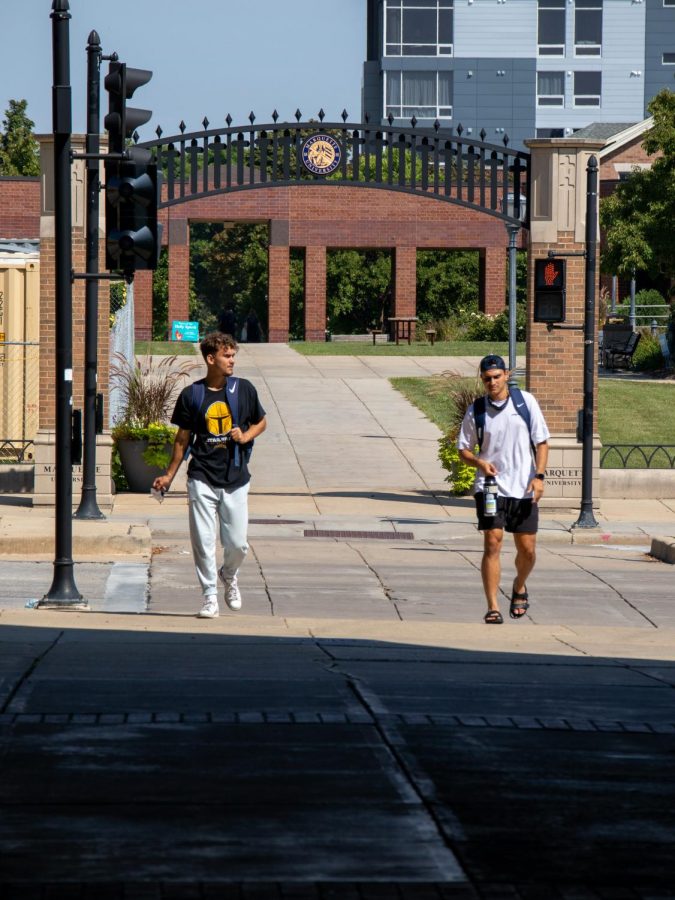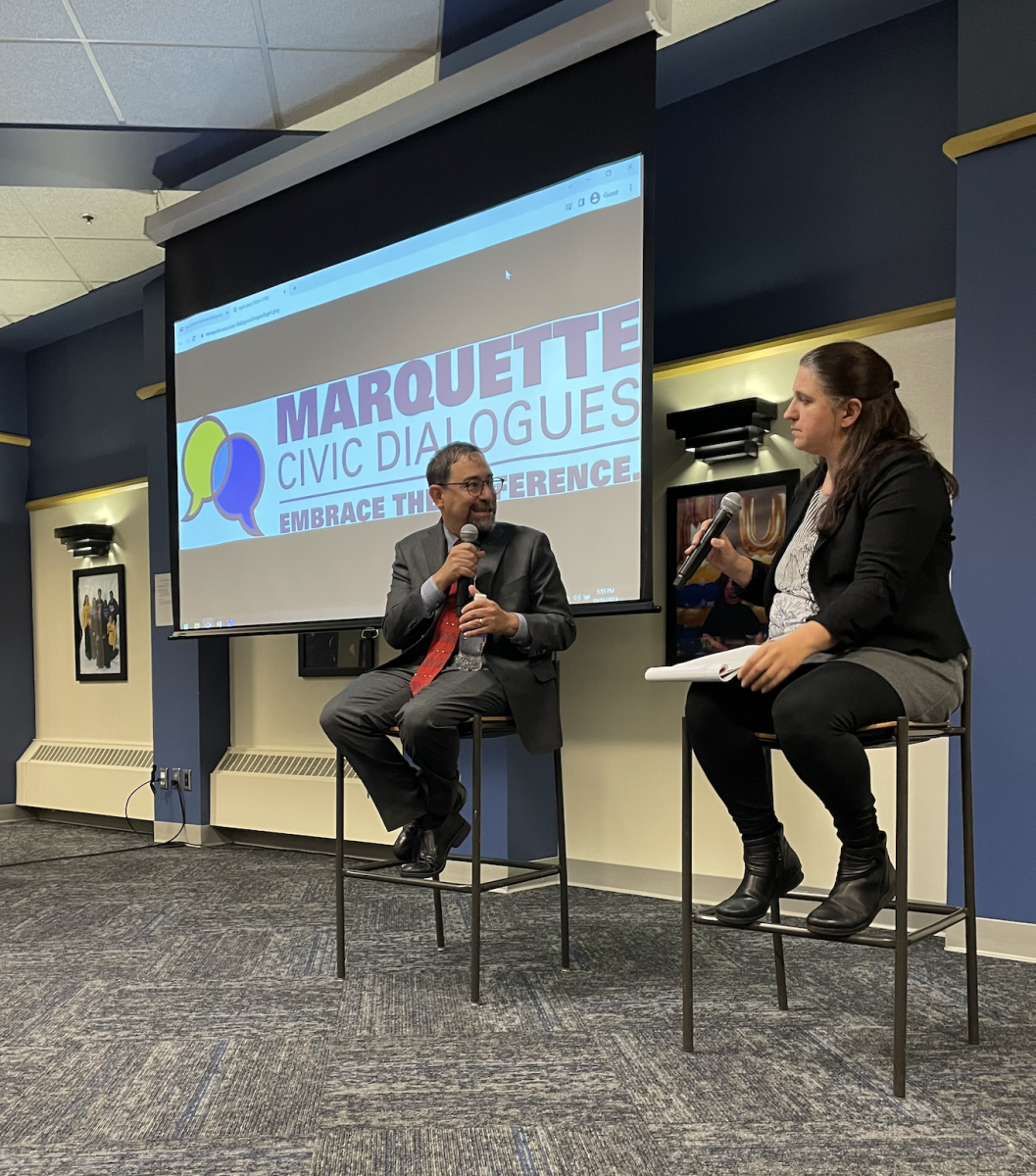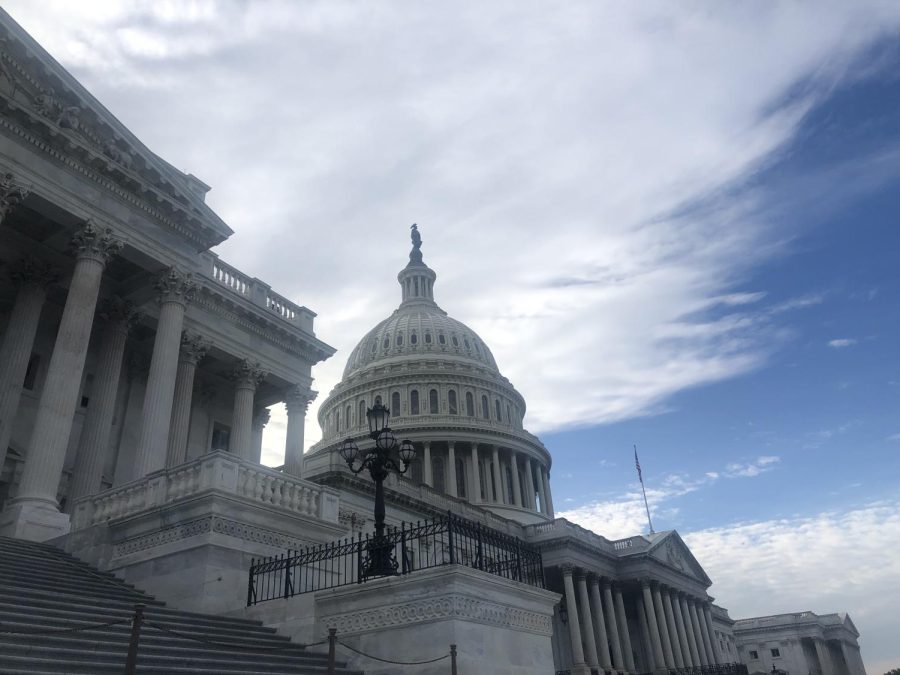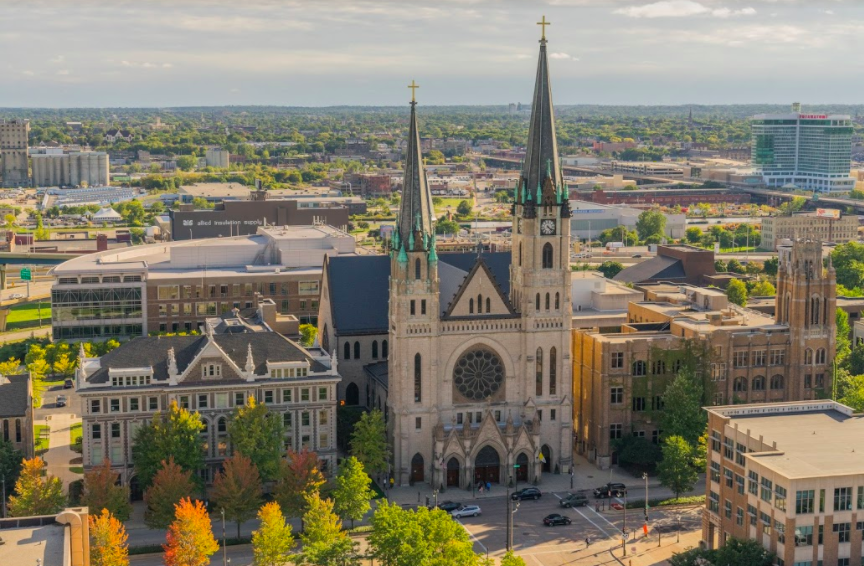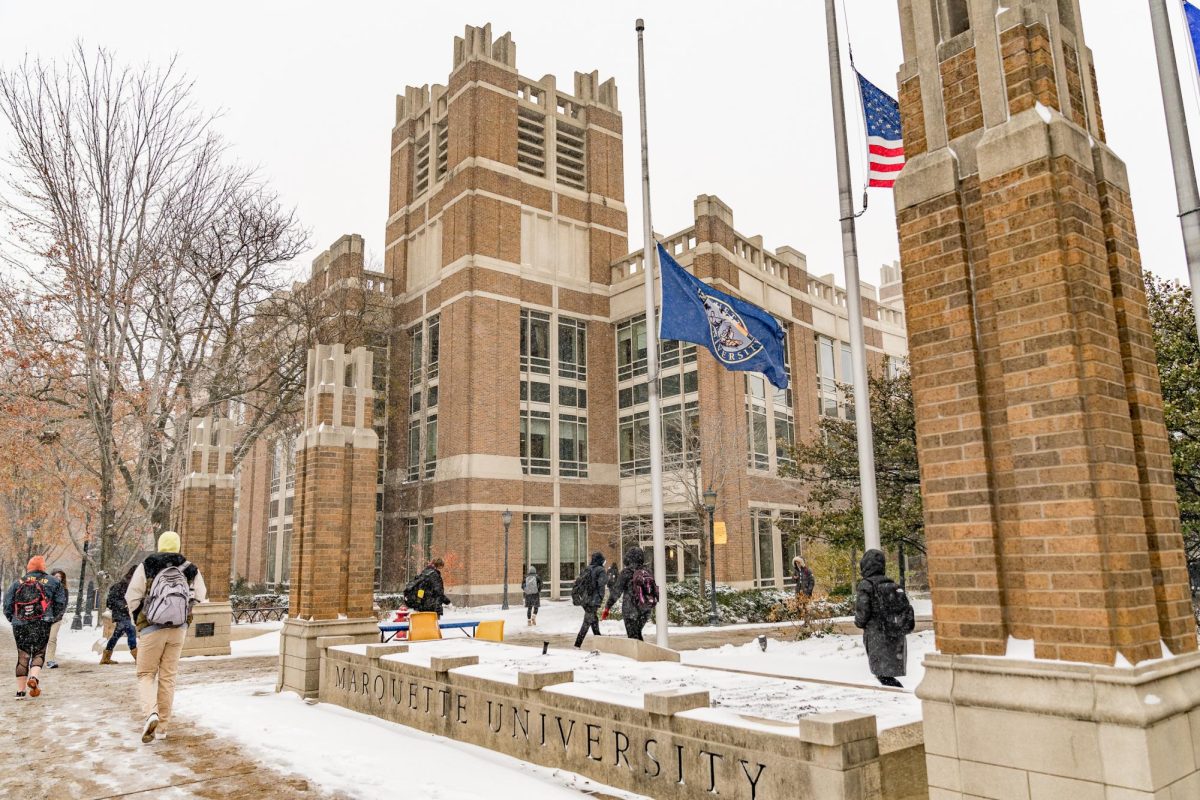Higher education is facing threats from the Trump administration in the form of cuts to research funding, changes to the status of international students and more executive orders which have affected various universities across the nation.
In response to this, Marquette University hosted a panel titled Current Threats to Universities and Democracy (and how they affect you), on April 22. The panelists included Julia Azari, Robert Wheeler, Noelle Brigden, Louise Cainkar and Ben Pladek. These Marquette professors teach and research a variety of studies, ranging from political science to biomedical sciences.
The panel started with remarks from Phillip Rocco, a professor in the political science department. He spoke on the necessity of independent learning institutions.
“Universities cultivate research and innovation. They drive the economies of the regions that we live in. They allow diverse ideas to be explored, to be contested, to be refuted, to be revised,” Rocco said.
Rocco said that modern democratic societies cannot function without universities. He said that attacks on universities are a part of a larger trend in the weakening of democratic practices, a trend that the United States is not immune to.
Robert S. Smith, director of the Center for Urban Research, Teaching & Outreach, and Harry G. John, professor of History at Marquette University, moderated the panel and invited attendees to pass up any questions they had for the day’s speakers.
Smith said that speaking about social issues, such as recent threats to democracy, is a part of the Jesuit mission.
Executive orders
The mic was passed to Julia Azari, a political science professor, who then spoke about the recent slew of executive orders. Azari offered some context and defined executive orders as directions for how to carry out existing policies and not as a declaration of policy.
“Even though executive orders are very much part of the governance process, they’re very much part of the way our government works and the way our constitution is set up,; the way Trump talks about them and has used them is very unusual,” Azari said.
Azari said this use of executive orders is unusual because they have been used more frequently and seem to be preferred by Trump rather than working with congress.
NIH research grants
Switching from political to biomedical science, Robert Wheeler, a professor in the department of biomedical science, spoke about the Trump administration’s changes to the NIH research grants.
A new budget presented by Trump would make cuts to the National Institutions of Health and Centers for Disease Control and Prevention.
Wheeler said that the grants are only awarded after a “rigorous” process which determines what research will have the highest impact and direct human health relevance.
“These are not frivolous grants that are being terminated,” Wheeler said.
Marquette has already lost a federal grant for U-RISE, an undergraduate research program. U-Rise offers students the opportunity to conduct research with their professors during their junior and senior year, and these projects range from engineering, arts and sciences and health sciences.
International students
Noelle Bridgen, a political science professor with specialties in international relations, then moved the panel to a discussion about El Salvador prisons. She stressed the seriousness of deportations to these prisons without due process.
“It is no coincidence that El Salvador has become ground zero for the standoff efforts for the Trump administration and potentially the last battleground for U.S. democracy,” Bridgen said.
The panel also heard from Louise Cainkar, professor and director of the Interdisciplinary Peace Studies program, who spoke on another part of the Trump administration’s changes to university life: the status of international students.
Cainkar said the information regarding the revoking of student rights is limited and confusing. She predicts major changes to life for international students.
Trump has revoked student visas of some international students. This included a graduate student from Marquette University, who later had his SEVIS record restored to active status.
“Looking to the future, I expect growing numbers of revocations of permanent residency, based on fraud-seeking reviews of immigration applications, and potentially some de-naturalizations of US citizens,” Cainkar said.
LGBTQ+ life
Lastly, Ben Pladek, director of Graduate Studies and associate professor of English, spoke about the effect the Trump administration will have on LGBTQ+ faculty and staff.
Pladek said that the following five executive orders will have the most direct impact on the Marquette community:
-The federal recognition of only two sexes
-Threats to deny medical care to trans people under 19
–Threats to teachers in public and K-12 schools who respect students’ genders
-Removal of Title IX protections for trans students
-Demanding federal agencies and federally funded institutions to remove trans and queer content from websites, scientific studies and archives.
Despite this, Pladek ended on a hopeful note.
“The government can say you don’t exist, but you do. It can say you are alone, but you aren’t. Find your community, especially your in-person, local community, and connect with them. We have protected each other before. We can, and will, do it again,” Pladek said.
While there were a variety of topics discussed, there are some factors still unclear. And, as of right now, it is unknown how the Trump administration will continue to affect universities across the nation.
Marquette University has a task force dedicated to monitoring these changes and keeping students and the community updated.
This story was written by Ruby Mulvaney. She can be reached at ruby.mulvaney@marquette.edu.
This story was edited to update status of a Marquette University graduate student whose visa was revoked. The student’s SEVIS record has now been restored to active status.



